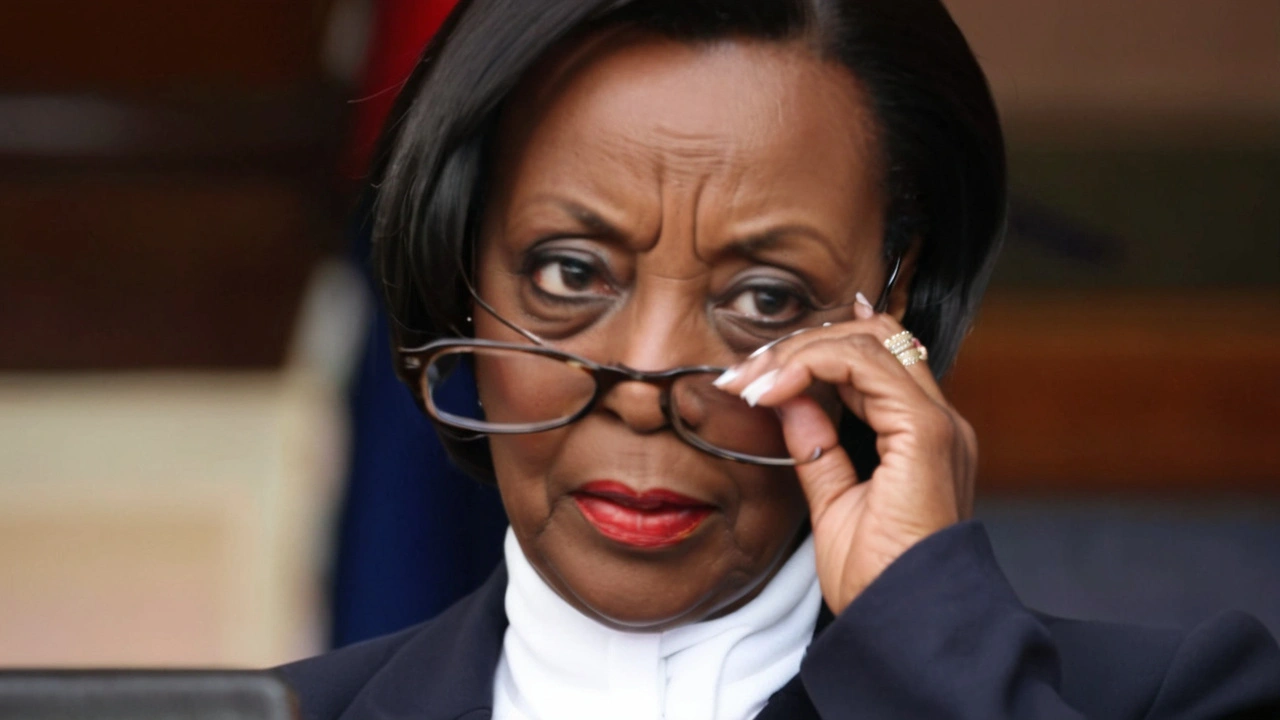Martha Karua's Exit from the Azimio la Umoja Coalition: A Detailed Look
The political landscape in Kenya has always been dynamic and, at times, unpredictable. Recent developments have once again stirred the waters. Martha Karua, a prominent figure in Kenyan politics and the leader of the NARC-Kenya Party, has officially announced her departure from the Azimio la Umoja One Kenya Coalition. This decision, which was made public through an official statement released by Karua, underscores the deepening rifts and ongoing turmoil within the coalition.
Background of the Azimio la Umoja Coalition
The Azimio la Umoja One Kenya Coalition was established with the aim of uniting various political parties and factions to create a more cohesive and formidable front against competing political entities. Led by Raila Odinga, a veteran politician with a significant following, the coalition managed to bring together a wide array of political leaders, each with their unique backgrounds and ambitions. Martha Karua, a respected and influential politician in her own right, was, until recently, one of the key figures within this coalition. Notably, she served as Raila Odinga's running mate during the 2022 presidential election, a testament to their once-close political alliance.
The Catalyst for Karua's Departure
President William Ruto's recent decision to nominate four senior officials from the Orange Democratic Movement (ODM) to key cabinet positions appears to have been a significant factor in Karua's decision to leave the coalition. This move by President Ruto has been interpreted by many within the coalition as an attempt to foster a closer relationship with the ODM, a key constituent party within the Azimio la Umoja coalition. For Karua, this development was unacceptable, prompting her to reconsider the position of her party within the coalition.
In her official statement, Karua highlighted the evolving political landscape and the decisions being made within the coalition that, in her view, rendered the continued participation of her party, NARC-Kenya, untenable. “The recent political developments and the decisions taken by the coalition have created a situation where our continued participation is no longer conceivable,” she stated.
Implications of Karua’s Exit
Karua's departure is not just a personal decision; it has broader implications for the coalition and the wider political environment in Kenya. Within the Azimio la Umoja coalition, her exit may trigger introspection among other member parties, some of which may similarly feel sidelined or marginalized by recent decisions. This development highlights the fragility and underlying tensions that have plagued the coalition since its inception. Accusations are already emerging from some quarters within the coalition, alleging that Raila Odinga is becoming too cozy with the Kenya Kwanza government, which could further exacerbate existing conflicts.
The sentiment that Karua's departure is a significant loss for the coalition is shared by many. Known for her strong stance on various socioeconomic issues and a reputation for integrity and resilience, Karua brought a considerable level of credibility and gravitas to the coalition. Her exit, therefore, leaves a void that may be hard to fill and calls into question the coalition's future trajectory.
Reactions from Political Peers and Analysts
The reaction to Karua’s departure has been varied. Some political analysts believe that this move may weaken the Azimio la Umoja coalition, given Karua’s influence and the respect she commands among many Kenyans. “Martha Karua’s exit is a blow to the coalition. It’s a reflection of deeper issues that have not been adequately addressed,” said a political commentator. Other observers, however, see this as an opportunity for the coalition to reorganize and potentially emerge more united in the future.
Within the coalition itself, reactions range from disappointment to open criticism of Raila Odinga’s leadership. A section of the coalition members views this as an inevitable outcome of recent political maneuvers and decisions that, in their opinion, have not been adequately inclusive or representative of the coalition’s broader interests. This incident underscores the perennial challenge of maintaining unity within a politically diverse and ideologically varied coalition.
Looking Ahead: The Future of Azimio la Umoja
The path ahead for the Azimio la Umoja coalition is fraught with challenges. With internal disagreements now coming to the fore in such a public manner, the coalition’s leadership faces the daunting task of mending fences and reassuring its member parties of their shared vision and objectives. The recent turmoil can serve as an opportunity for the coalition to reevaluate its strategies and address the concerns that have led to such high-profile exits.
For Martha Karua and her NARC-Kenya Party, the future is equally uncertain but replete with potential opportunities. Karua's departure from the coalition does not mark the end of her political journey; rather, it may signal a new phase in her enduring career. As a seasoned politician with a significant following, Karua continues to be a key player in Kenya’s political arena, and her next moves will be closely watched by both allies and adversaries alike.
In conclusion, Martha Karua’s exit from the Azimio la Umoja coalition is a momentous event in Kenya’s political timeline. It not only highlights the current rifts within the coalition but also sets the stage for potential realignments and new alliances. As the political dust settles, the true impact of this development will become clearer, shaping the future dynamics of Kenyan politics.






6 Comments
devika daftardar
July 28, 2024 AT 01:00 AMthis is why coalitions always fall apart
everyone wants to be the boss but no one wants to actually do the work
karua had principles and now she's out
the rest will follow when they realize they're just props in someone else's play
fatima almarri
July 29, 2024 AT 21:33 PMi feel like this is a classic case of structural dissonance in political alliances
when you bring together ideologically divergent actors under a single banner without institutionalized conflict resolution mechanisms
you're essentially building a house on sand
karua's exit isn't a failure of personhood-it's a failure of architecture
deepika singh
July 31, 2024 AT 16:56 PMwow this is wild but also so predictable 😅
martha karua was the real deal-no fluff, no fake smiles, just straight-up integrity
she didn't need to be in a coalition to be powerful
she's the kind of leader who turns heads even when she's not in the room
kenya lost a gem but she? she just leveled up
amar nath
August 2, 2024 AT 03:29 AMyou know what this reminds me of? the indian coalition days in the 90s
everyone shook hands, took pics, then quietly plotted behind each others backs
same script, different continent
the real question is-did ruto just outmaneuver the whole thing? or is this just the first domino?
Pragya Jain
August 2, 2024 AT 18:47 PMthis is why we need strongmen not weak coalitions
karua should have stayed and fought from within
leaving is surrender
kenya needs unity not fragmentation
she's playing into the hands of the opposition
Shruthi S
August 2, 2024 AT 19:03 PMshe's not gone... she's just recharging 💪❤️